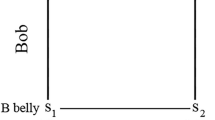Abstract
We qualify a social choice correspondence as resolute when its set valued outcomes are interpreted as mutually compatible alternatives which are altogether chosen. We refer to such sets as “committees” and analyze the manipulability of resolute social choice correspondences which pick fixed size committees. When the domain of preferences over committees is unrestricted, the Gibbard–Satterthwaite theorem—naturally—applies. We show that in case we wish to “reasonably” relate preferences over committees to preferences over committee members, there is no domain restriction which allows escaping Gibbard–Satterthwaite type of impossibilities. We also consider a more general model where the range of the social choice rule is determined by imposing a lower and an upper bound on the cardinalities of the committees. The results are again of the Gibbard–Satterthwaite taste, though under more restrictive extension axioms.
Similar content being viewed by others
References
Aswal N, Chatterji S, Sen A (2003) Dictatorial domains. Econ Theory 22(1):45–62
Barberà S (1977) The manipulation of social choice mechanisms that do not leave too much to chance. Econometrica 45:1573–1588
Barberà S, Sonnenschein H, Zhou L (1991) Voting by committees. Econometrica 59(3):595–609
Barberà S, Dutta B, Sen A (2001) Strategy-proof social choice correspondences. J Econ Theory 101:374–394
Benoit JP (2002) Strategic manipulation in voting games when lotteries and ties are permitted. J Econ Theory 102:421–436
Bossert W (1995) Preference extension rules for ranking sets of alternatives with a fixed cardinality. Theory Decis 39:301–317
Campbell DE, Kelly JS (2002) A Leximin characterization of strategy-proof and non-resolute social choice procedures. Econ Theory 20:809–829
Ching S, Zhou L (2002) Multi-valued strategy-proof social choice rules. Soc Choice Welf 19:569–580
Duggan J, Schwartz T (2000) Strategic manipulability without resoluteness or shared beliefs: Gibbard–Satterthwaite generalized. Soc Choice Welf 17:85–93
Feldman A (1979a) Nonmanipulable multi-valued social decision functions. Public Choice 34:177–188
Feldman A (1979b) Manipulation and the Pareto Rule. J Econ Theory 21:473–482
Gärdenfors P (1976) Manipulation of social choice functions. J Econ Theory 13:217–228
Gärdenfors P (1978) On definitions of manipulation of social choice functions. In: Laffont JJ (ed) Aggregation and revelation of preferences. North Holland, Amsterdam
Gibbard A (1973) Manipulation of voting schemes: a general result. Econometrica 41:587–601
Kannai Y, Peleg B (1984) A note on the extension of an order on a set to the power set. J Econ Theory 32:172–175
Kelly JS (1977) Strategy-proofness and social choice functions without single-valuedness. Econometrica 45:439–446
Özyurt S, Sanver MR (2005) Almost all social choice correspondences are subject to the Gibbard–Satterthwaite theorem. Unpublished working paper
Pattanaik PK (1973) On the stability of sincere voting situations. J Econ Theory 6:558–574
Roth A, Sotomayor MAO (1990) Two-sided matching: a study in game theoretic modelling and analysis. Cambridge University Press, London
Satterthwaite MA (1975) Strategy-proofness and Arrow’s conditions: existence and correspondence theorems for voting procedures and social welfare functions. J Econ Theory 10:187–217
Author information
Authors and Affiliations
Corresponding author
Rights and permissions
About this article
Cite this article
Özyurt, S., Sanver, M.R. Strategy-proof resolute social choice correspondences. Soc Choice Welfare 30, 89–101 (2008). https://doi.org/10.1007/s00355-007-0223-6
Received:
Accepted:
Published:
Issue Date:
DOI: https://doi.org/10.1007/s00355-007-0223-6



